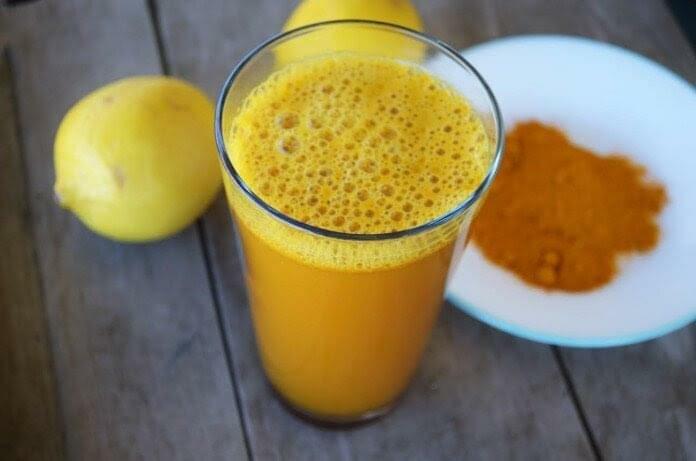Spring Detox - Try Turmeric
Spring has arrived!
As the outer environment changes reflecting the inner, the melting of the mountain snow mirrors the inner snow of Beken (one of the three humours; composed of water and earth elements) in our bodies making us feel heavy and phlegmatic. Our liver is waking from its Winter slumber making it a perfect time for a gentle liver detox. Turmeric, well known for its detoxifying effects, is a great way to do so!
What is Turmeric?
Turmeric is the rhizome (root) of Curcuma longa that is commonly found fresh or in a yellow-orange colour powder form for culinary use. Belonging to the ginger family, it is widely cultivated and consumed especially in South Asia.
India produces almost all of the world's turmeric, which is considered to be of the highest quality. But beware of counterfeit turmeric products as they can be toxic! So it is important to always check the source.
This golden root is not only a kitchen spice that enhances the colour and aroma of dishes, but is also a powerful medicine that has been used for thousands of years in traditional Tibetan medicine (TTM) a.k.a. Sowa Rigpa, Chinese medicine (TCM), and Ayurveda.
Turmeric and Curcumin: are they the same?
Turmeric is the whole root of the Curcuma longa plant, while curcumin is the main active ingredient responsible for many of turmeric's beneficial properties and its distinctive yellow color. Nowadays, you can easily get curcumin capsules which are more concentrated than the root itself, but I prefer to use it in its natural form, in a symphony of other phytochemicals that the plant contains. Also, when taking curcumin, dose matters because of its high concentration, so be cautious and give your body a rest periodically from taking it. Too much may actually reverse its beneficial effects by turning off detoxification.
Benefits of Turmeric
Although most research on the benefits of turmeric was focused specifically on curcumin, some evidence suggests that turmeric may also be effective for specific health problems. This is thought to be because there are many different chemical compounds in turmeric that work synergistically together.
- Anti-inflammatory Effects
Turmeric is strongly anti inflammatory and is beneficial especially for the chronic inflammations. In the immune system, curcumin specifically lowers the overactive Th1 lymphocytes which mediate diseases such as rheumatoid arthritis, Hashimoto thyroiditis, SM, IBD inflammatory bowel diseases, vitiligo, psoriasis, and neurodegenerative diseases.
- Detoxification and Liver Functions
Turmeric is a great detoxifier by helping liver remove all kinds of toxins.It reduces chronic inflammation in every cell and organ of the body, but is especially good for liver detoxification because of its hepatoprotective properties. It also lowers cholesterol and regulates the flow of bile ( so be careful if you have gall stones).
In Sowa Rigpa, it is used for treating hemorrhoids and diabetes.
- Antioxidant and Anti-aging
Turmeric has antioxidant properties that protect our bodies at the cellular level by preventing damage caused by free radicals. Free radicals can cause oxidative stress and lead to many diseases and premature aging if not kept at bay.
Curcumin was found to suppress the mTOR intracellular signaling pathway, which is a critical growth regulator responsible for regulating our cells’ life cycles. It induces apoptosis or autophagy (programmed destruction) of sick cells, thus promoting longer lifespan, healthier cell functions and protection against the onkological growth. No surprise it is used in Sowa Rigpa in so called Chudlen practiceas one of the rejuvenating substances!
- Antibacterial, Antifungal and Antiviral Effects
Turmeric is used as an antimicrobial agent in many traditional medical systems.
A 2014 systematic review determined that curcumin exhibits antibacterial activity, with the most promising results shown against the bacterium Helicobacter pylori (H. pylori), which infects the stomach, causing inflammation and damaging the tissues of the gastrointestinal tract. Turmeric has also been found to have antifungal effects, particularly against the fungi Paracoccidioides brasiliensis and Candida. Curcumin has also been found by analysis to have antiviral effects and treats infectious diseases thanks to its antimicrobial and immunostimulating functions.
- Neuroprotective
You probably have also heard that turmeric has a neuroprotective effect for cognitive decline, dementia, Parkinsons and Alzheimer’s disease.
- Women's Health and Pregnancy
Due to its antinflammatory properties turmeric can relieve endometriosis, but it doesn't have to be that great for fertility, because it also lower estrogens. It is safe to use in pregnancy as a spice, in moderate amounts, but be careful with overdosing if you take curcumin capsules. In pregnant women it's been found to be useful in heartburn, bleeding gums and as a prevention of preeclampsia.
- External Use
Turmeric can be used topically to address various ailments such as dermatological conditions, infections, acne, and tissue necrosis.
Beware of Contraindications
Take caution as turmeric can interact with blood-thinning and diabetes medications as well as antacids. Therefore, check with your doctor or pharmacist for safety if you are taking Western medicine.
Disclaimer: It is NOT a medical advice. If you suffer from any health issue always consult with your doctor.


